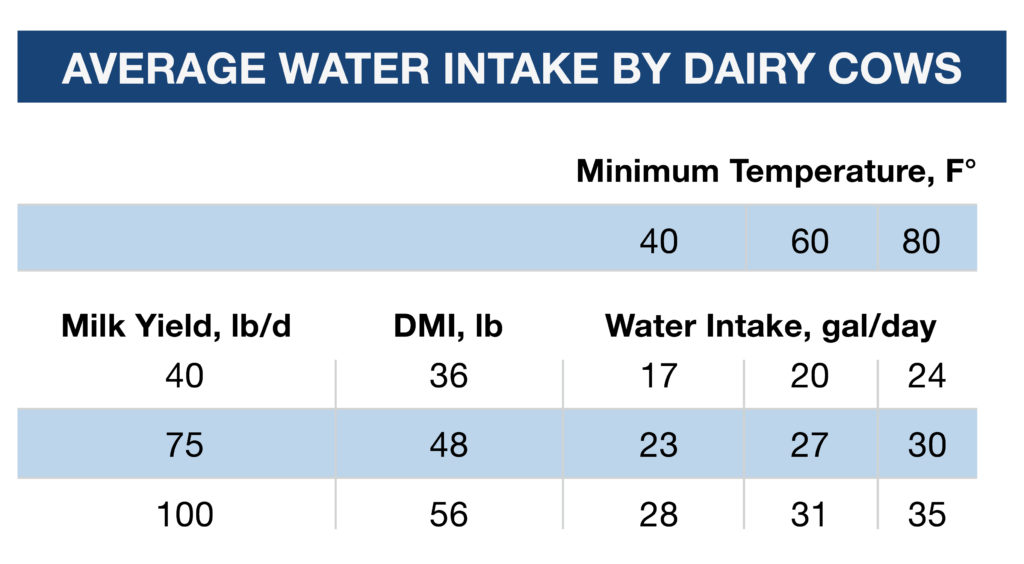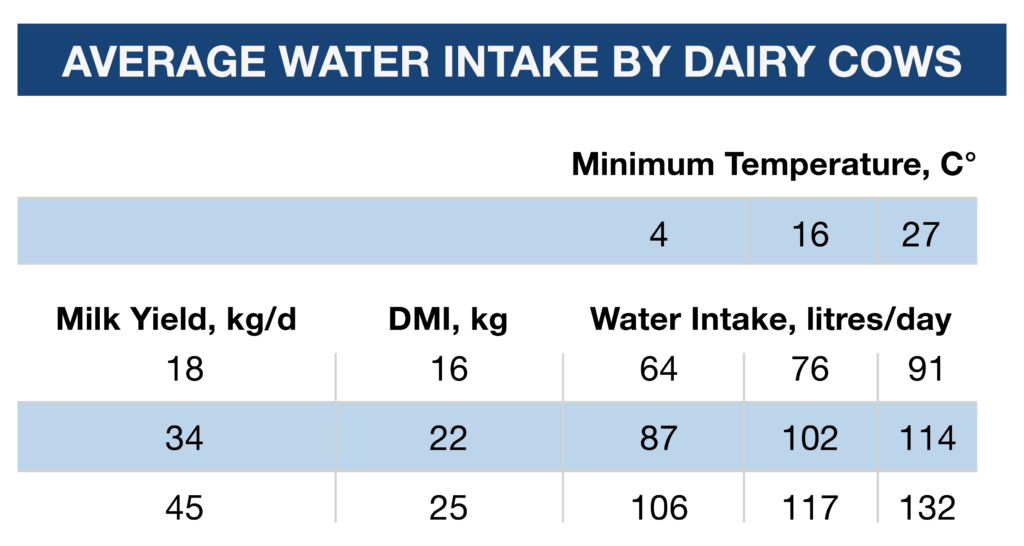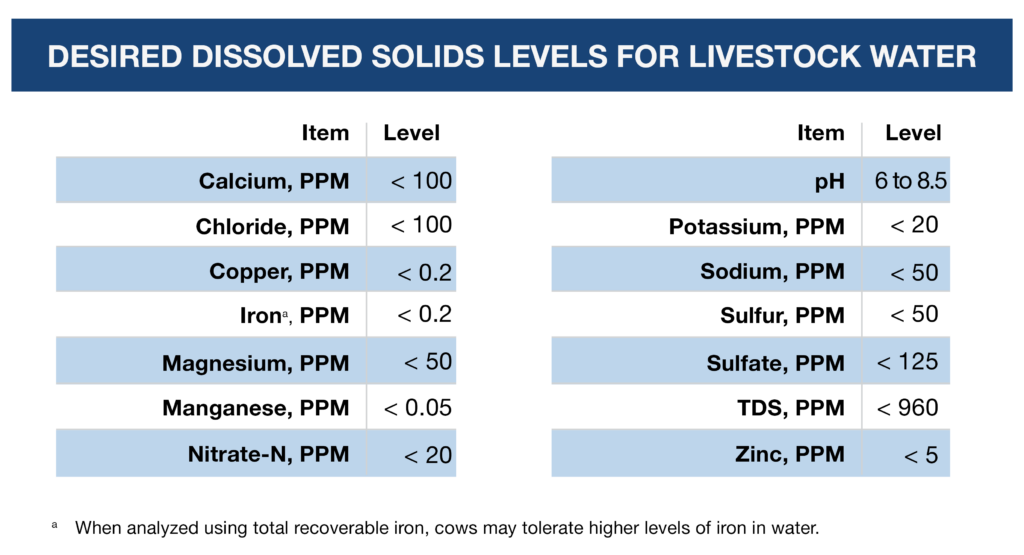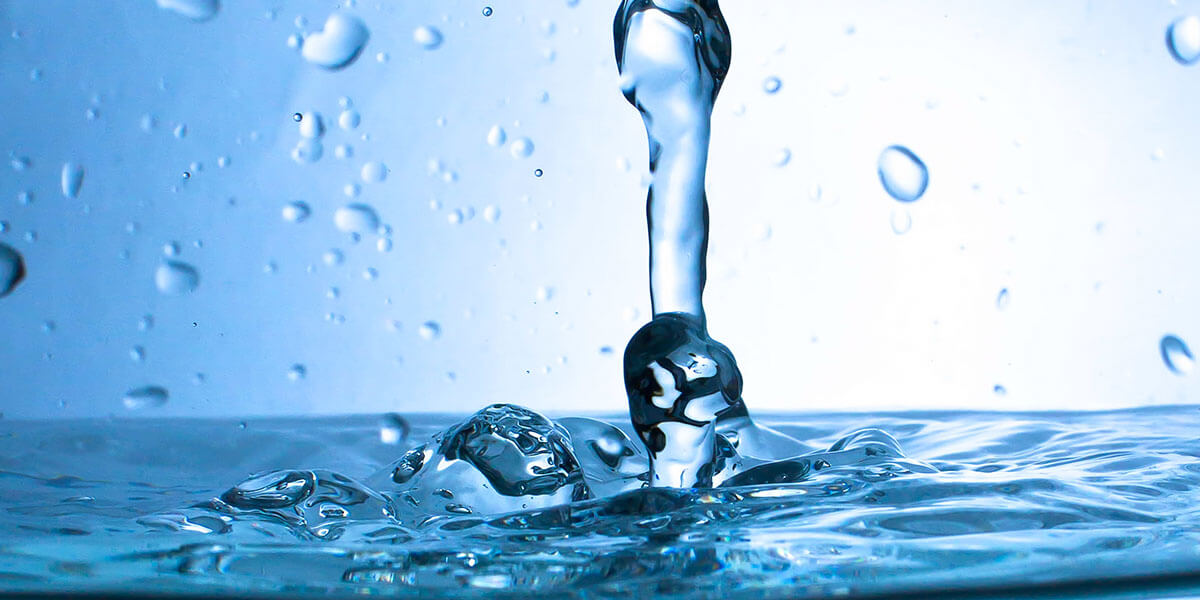Except for oxygen, water is the single most important nutrient for livestock. Each dairy cow consumes 30 to 50 gallons (115 to 190 liters) of water per day. That means 400 cows could drain a 16-by-32-foot (4.8-by-9.7 meter) swimming pool every day. Delivering that much quality water to your herd can be a challenge.
The stakes are high. Research shows depriving calves of adequate fresh water can decrease starter intake by 31 percent and decrease weight gain by as much as 38 percent compared to calves provided with free-choice water. Drinking water provides 60 to 80 percent of dry and lactating cows’ water needs (feed provides the remaining amount).


Symptoms of low-quality water supply for dairy cattle
- Health or performance concerns in the herd
- Digestive upsets or scours in replacement animals
- Deteriorating health status of newly arrived heifers
- Off-flavor, smell or color of drinking water
- Digestive upsets in humans drinking from the same water source
Dairy cows need easy access to water
The difference between cows surviving and thriving can come down to how much clean water they drink every day.
- Poor water intake and quality in lactating cows can cause depressed immune systems, decreased fertility, increased off-feed events and erratic eating patterns.
- Inadequate water supply impacts blood volume, tissue function, rumen activity and proper flow of feed through the digestive tract.
- Water counts for 87 percent of the milk a dairy cow produces, which makes water quality and quantity critical to maximize milk production.
- Cows only spend 20 to 30 minutes drinking per day, compared to four to five hours eating. The relatively few minutes they spend drinking per day makes easy access to water critical.
Step 1: Clean water troughs daily. Without accomplishing this step, there’s no point in going to Step 2.
Step 2: Test for total dissolved solids. A single test can provide a reading on the sum of all the dissolved and suspended inorganic matter present in the water sample. Quantities of dissolved solids over the recommended limits of sulfate, chloride, iron, manganese and nitrates can significantly affect animal performance.

Zinpro offers a step-by-step tool for our customers to help put livestock and poultry producers on the road to optimal water quality. The Zinpro H2O Water Analysis Program analyzes and then compares water samples to water quality standards. The results can help nutritionists, producers and veterinarians identify areas of concern and review signs of potential toxicosis.
Research shows that Zinpro Performance Minerals® are more metabolically available to animals in the presence of mineral antagonists in the water than other forms of trace minerals.
To learn about the Zinpro H2O Water Analysis Program or about including Zinpro Performance Minerals as part of your livestock nutrition program, contact your Zinpro representative.

